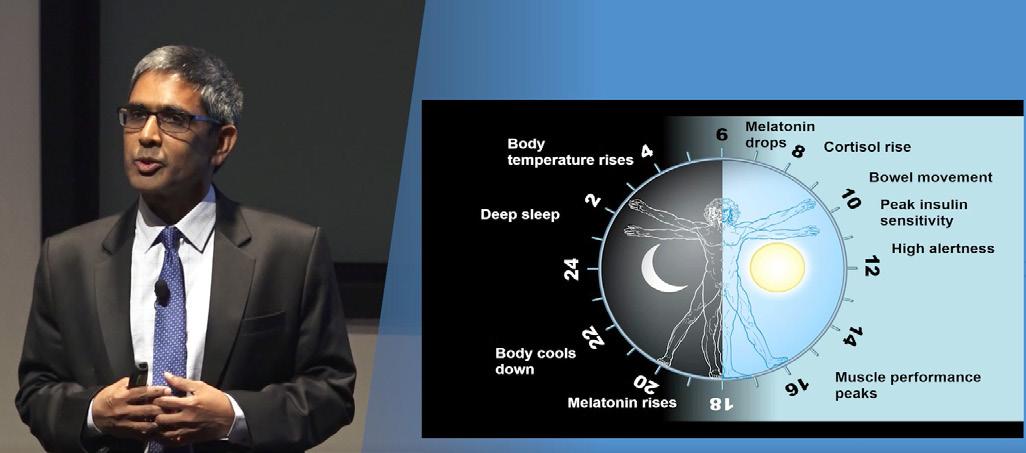
1 minute read
Expert Voices Sleep to Live, Sleep to Learn
from Newsletter Q1 2020
by BrainHealth
Russell G. Foster, PhD, BSc, FRS University of Oxford Professor and Collaborator on The BrainHealth Project™
(from a 217/20 talk at UTD)
Advertisement
Every aspect of our physiology and behavior is guided by a 24-hour beat arising from deep within our evolution, organized around the daily cycle of activity and sleep. In the active phase, energy expenditure and digestive processes are higher. Sleep activates other essential processes, including cellular repair, toxin clearance, memory consolidation and information processing. This sleep/wake cycle allows us to function optimally in a dynamic world.
Insufficient sleep causes harmful stress. Chronic sleep deprivation drives a widespread stress response that can lead to poor physical health, reduced cognitive function, frustration, low self-esteem, increased worry, anxiety and depression.
Happily, a number of approaches have been demonstrated to help improve sleep:

• Get as much morning natural light as possible
• Go to bed earlier
• Keep naps to 20 minutes, take them early in the day
• Exercise early in the day
• Have larger meals early in the day
• Avoid caffeine within six hours of bedtime
• Save stressful conversations for early in the day
• Create a soothing, consistent bedtime routine
• Reduce light exposure 30 minutes before bed – light intensity may be more important than color
• Minimize distractions and stimuli in the bedroom
• Keep the room cool
• Remove clocks to avoid “clock watching”
• Invest in a good mattress and pillow
If you do wake up during the night, try to relax knowing that sleep is likely to return as long as you avoid behaviors that increase alertness.






